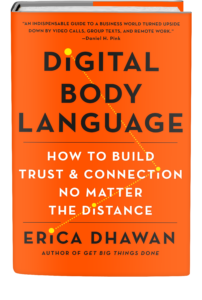 While our lives are increasingly interconnected, the time and space for us to cultivate meaningful connections have become limited. You know the feeling of handing out business cards in a crowded convention center, listening to keynote speakers in a cramped room, and never really remembering anyone because you were checking your email half the time. What you crave is to find events where you meet people who can inspire you to grow—people who can catapult your work and push you to question, try, fail, and succeed. Ultimately, what you really want is to develop high quality connections around you. I believe curated events and conferences are a critical part of discovering and fostering those connections.
While our lives are increasingly interconnected, the time and space for us to cultivate meaningful connections have become limited. You know the feeling of handing out business cards in a crowded convention center, listening to keynote speakers in a cramped room, and never really remembering anyone because you were checking your email half the time. What you crave is to find events where you meet people who can inspire you to grow—people who can catapult your work and push you to question, try, fail, and succeed. Ultimately, what you really want is to develop high quality connections around you. I believe curated events and conferences are a critical part of discovering and fostering those connections.
Although most events are meant to allow people to make meaningful connections, not all of them are created equal in allowing them. For most, hearing panel speakers and being in a crowd of hundreds or thousands doesn’t actually get you where you want to go. However, there are practical ways to ensure that when you attend your next networking event, you get the most value out of it. To make the most of your next event, follow these six tips.
1) Sit at tables with people you don’t know: Valuable connections are often made serendipitously, so it is beneficial to sit with diverse groups to have lunch or dinner together during the events. This prevents people from just talking with colleagues you already know and allows you to forge a greater variety of connections.
2) Talk to speakers before they speak: The best time to reach a speaker is before they speak. They are already at the event and interested in learning about the people in the room, rather than running out the door and crowded with people in the room. Show them that you have read up on them. This is a great way to initiate conversations that actually continue afterward and to get remembered.
3) Match-make new people: Event organizers often miss out on how to capitalize on the matchmaking the right people and often prioritize of “the big, powerful speaker.” Take the time to get to know people around you and make connections for others. People want to be around the matchmaker!
4) Sit in the front row of the events: Don’t just stick to the basics of sitting in the back of panels and breakfast speakers. Instead, mix it up and get front and center. This is a powerful way to engage with most of the most powerful attendees and connect with the speakers.

